Caucasian religions conference highlights Azerbaijan’s tolerance

More than 50 theologians, historians, academics and researchers gathered at the Hallam Conference Centre in London for the 'Religions in the Caucasus' conference organised by The European Azerbaijan Society (TEAS) on 3–4 March.
The event featured 18 academic papers presented by experts from Poland, France, Germany and Georgia, amongst other countries.
Lionel Zetter, Director, TEAS, prefaced the event saying: “The Caucasus sits at the crossroads of some of the world’s great empires and religions. In all my travels, I have never encountered a country like Azerbaijan, where the world’s great faiths – Judaism, Christianity and Islam – sit so comfortably together. This is why I am so proud to tell the country’s remarkable story to the world.”
The Very Reverend Dr David Ison, Dean of St. Paul’s Cathedral, commented: “Your conference is very important and timely. The globalisation process has led to a loss of identity, and a closer definition in ways that are more exclusive. Religion is often used as a means to discriminate and divide, even though its intention is not to do so. The name of God is often appropriated to support a particular perspective as a means of power and control, but the great world religions are universal in their scope.
“Faiths should be kind and generous. We all know such places as Azerbaijan, where people live alongside each other in peace and harmony. All people should listen to each other and explore the similarities of their faiths. Faith has a vision for the way in which the world can be transformed and become a place of peace and joy for all. Children from any community are our future, and the world belongs to them. We are working for the good of our grandchildren and beyond. He concluded by quoting from H.M. Queen Elizabeth II, who said: “Religions determine the way we live our lives and treat each other.
Faith provides not only a sense of belief, but of belonging and identity. They remind us of the responsibilities we have beyond ourselves.”
Many of the papers demonstrated the longstanding polyconfessional nature of Azerbaijan. Dr Goshgar Koshgarly, Head, Dept. of Archaeological Services, Azerbaijan National Academy of Sciences said: “Azerbaijan has a unique culture, and has always been an inter-ethnic country.” Supporting evidence was provided by the many burial techniques unearthed during archaeological digs in the country.
Farda Asadov, Head, Dept. of History and Economy of Arab Countries, Azerbaijan National Academy of Sciences and Vice-Rector of Khazar University said: “Khazar Jews were the first Jews in the Caucasus, and were always treated hospitably.” Moisey Bekker, Scientific Researcher, Azerbaijan National Academy of Sciences and Deputy Head of Georgian Jews in Baku said: “Ashkenazy, Sephardic and Mountain Jews were present in Azerbaijan, where they were well-treated. They participated in the first oil boom of the late 19th century, and many became lawyers, doctors and pharmacists. Schools were built, where Hebrew was taught, there were Jews in the Milli Majlis (Azerbaijani Parliament) from 1918–20, and they were always accepted as full Azerbaijani citizens.” He concluded with a quote from Heydar Aliyev, former President of Azerbaijan, that summed up the Azerbaijani stance that said: “There never has been, or will be, anti-Semitism in my country. This is unshakeable.”
The ancient civilisation of Caucasian Albania, the first Christian nation in the Caucasus, was the focus of several papers. Professor Dr Farida Mammadova, Azerbaijan National Academy of Sciences, commented: “The first Episcopal church in the Caucasus was in Caucasian Albania. It had ordained clergy, and 12 dioceses, three of which were in Karabakh, which is currently occupied by Armenia. Several sources speak of this territory.” She went on discuss the movement of Armenians from modern-day Anatolia and outlined how the Armenians systematically subsumed the Caucasian Albanian identity, altered its monuments and destroyed or hid Caucasian Albanian manuscripts, replacing them with those in the Armenian language.
A valuable insight into recent archaeological additions to the small canon of Caucasian Albanian literature was delivered by Professor Dr. Jost Gipper t, Institute for Empirical Languages, University of Frankfurt. He has recently deciphered the Caucasian Albanian alphabet, enabling him to read religious inscriptions on monuments and gravestones in the region. Dr Bernard Outtier, Honorary Member of the National Academy of Sciences of Georgia, said: “We have 1000 words in Caucasian Albania, and this can compared to modern-day Udi, spoken by the Christian Udin community in the Gabala region of Azerbaijan. Much work has been done to keep the Udi language alive, unlike Caucasian Albanian, which disappeared due to the influence of Armenia.”
A similar theory was explained by Robert Mobili, Baku State University and Chairman of the Albanian-Udin Community, who commented: “Caucasian Albanians lived in the Greater Caucasus in Azerbaijan and Dagestan from the 2nd–3rd Century A.D. Their monuments incorporated many Christian symbols. They were challenged by the influence of Islam in the region, but the two religions peacefully coexisted. The Caucasian Albanians developed their own system of self-government. However, the Armenians appropriated or destroyed their churches. Interest in Caucasian Albania has only been reasserted since the regaining of Azerbaijani independence in 1991, and churches have been reconstructed.”
Further sessions focused on the further development of Christianity across the Caucasus, the impact of Islam, the ancient origins of the Zoroastrian faith, missionary work and demographics in the 19th and 20th centuries, and some of the challenges faced by religions.
TEAS will publish the proceedings in the near future.
ANN.Az
























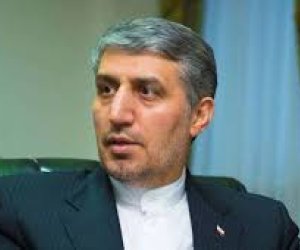
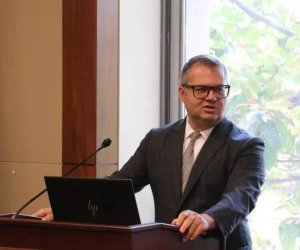
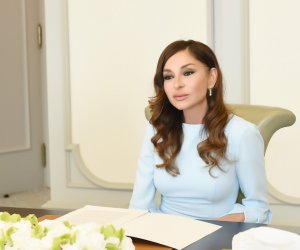
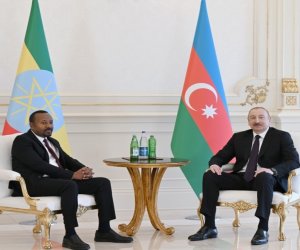
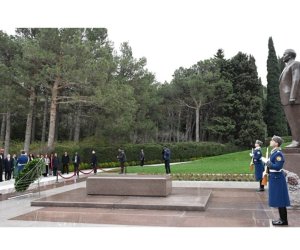

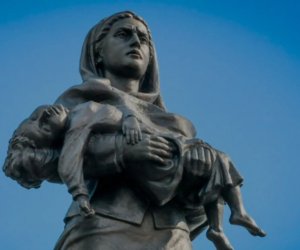
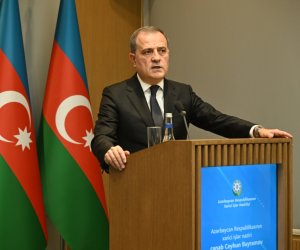
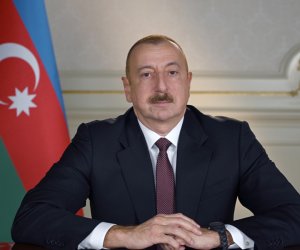



 Photo
Photo 



 Video
Video 

